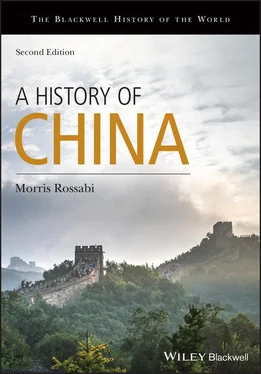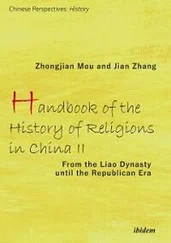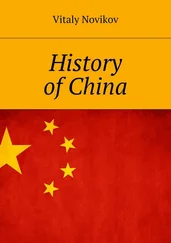Unlike the earlier Confucian thinkers, Xun Zi presented his arguments in a logical narrative rather than in anecdotes. Relying on a rational exposition of his views and shunning the elliptical and illustrative stories used by his predecessors, he summarized the main tenets of Confucianism in a direct and forceful style. His work consisted of straightforward exposition instead of the imaginary dialogues concocted by earlier philosophers. He also differed from his Confucian predecessors in offering a trenchant critique of the thinking of non-Confucian philosophers instead of merely satirizing or lampooning them. He disparaged Daoism, for example, for its seeming otherworldliness and its lack of concern for human affairs.
Like Confucius, Xun Zi supported a carefully graded social hierarchy, with every individual recognizing his or her position. Social order necessitated class distinctions, and equality would be disastrous. Similarly, he insisted on proper naming of things and concepts on the grounds that they defined distinctions between groups in society – distinctions that facilitated governance and social order.
Despite Xun Zi’s faith in education, he still believed in the need for coercion. Mankind, on occasion, had to be forced to pursue the right path. Unlike Mencius, Xun Zi was hardheaded and not totally confident in mankind’s self control and drive toward the good. Lacking some of Mencius’s idealism, he proposed a harsher means of curbing mankind’s evil impulses. The rulers to whom both sought to appeal found Xun Zi’s ideas more realistic, and it is thus no accident that he was the only one of these three major Confucians to become a government official. He served in the states of Qi and then the Chu for about three decades.
However, Xun Zi’s realism and pragmatism eventually undermined his standing with Confucians. Late in life he traveled to the state of Qin, where he attracted two disciples – Han Fei Zi, later a principal spokesperson for Legalism, and Li Si, a state minister – who ultimately castigated Confucianism. Yet he himself condemned the authoritarianism of Qin.
In addition to the writings of Confucius, Mencius, and Xun Zi, a number of other texts were associated with Confucianism and were incorporated into the Confucian canon. Two of the most significant derived from a specific work, the Book of Rites ( Liji ). Written by members of the Confucian school possibly as late as 200 BCE, it nonetheless reflects some of Confucius’s views. Like the Analects , the “Great Learning” ( Daxue ) section seems often to be directed to rulers, though its teachings apply to the rest of the population as well. It links ruling well with good relations within the family, which, in turn, entailed abiding by the proper moral code. The individual needed to cultivate himself if he were to succeed as the ruler of a good government. In effect, proper conduct by the individual and the ruler would inevitably result in a proper government. If the individual and the family embodied humaneness, the country as a whole would be properly regulated.
The “Mean” ( Zhongyong ), the other passage, was addressed to rulers as well as to ordinary subjects. As its title implies, this section proposed moderation, the Aristotelian mean, as the proper mode of behavior and governance. If the ruler genuinely adopted the moral code that emphasized goodness, he would attract the men he required to establish a stable and benevolent government. Li (rituals) mandated a set of reciprocal obligations between the ruler and those he ruled. As a person with a superior status, he still needed to treat those with inferior status according to the proper ritual principles. In essence, his actions ought to reflect his station in life, a view that surely confirmed the existing social hierarchy.
Mo Zi (ca. 470–391 BCE) also responded to the chaos of the times, but his diagnosis and prescriptions diverged markedly from those of the Confucians and Daoists. Little is known of Mo Zi’s own life or his writings, which his immediate disciples and later Mohists supplemented, edited, and revised. For almost three centuries, his ideas competed, with some success, with Confucianism, but Mohism’s own limitations, as well as the appeal of the Confucian ethical code, led to its decline after the second century BCE, save for in small and dedicated bands who owed absolute obedience to the supreme leaders of their respective groups.
Mo Zi’s failure to attract a wide following may have resulted from his principal concerns. Looking at a strife-torn China, he emphasized profit and universal love as a means of restoring stability and peace. He offered a simple utilitarian test for evaluation of behavior: he lauded conduct that provided material benefit or that resulted in the greatest profit for the greatest number. Productive use of resources was equated with moral value. Thus, Mo Zi denounced waste, urging the elimination of costly expenditures. The Confucian advocacy of elaborate and expensive funeral and marital ceremonies scandalized him and exacerbated his antipathy for what he perceived to be Confucianism’s corrupting influences on men. The emphasis on music and on the finest food and drink in rituals struck him as overly lavish and extravagant. For Mo Zi, the most wasteful human activity was warfare because of the harm it inflicted on people and the destruction it wrought on the land. He reviled aggressors because expansionist aims would divert leaders’ attention from internal affairs and farmers’ attention from work on the land, not to mention the damage such aims would cause to horses, weapons, chariots, and supplies. His condemnation of offensive war was based primarily upon its destruction and waste, and less so upon ethical concerns. Because aggressive wars were unprofitable, good rulers ought to shun them.
These pragmatic considerations entailed indirect criticism of contemporary rulers and aristocrats. Mo Zi objected to their abuses – wastefulness in useless and costly rituals and in destructive military conflicts. He appeared on the surface to reflect the aspirations and values of the lower and middle classes, for they suffered disproportionately from the excesses of the aristocracy and from warfare. Moreover, his obsession with waste, his denunciation of needless consumption, and his opposition to elegant and expensive refinements coincided with the interests of the common people. He also represented their needs in asserting that rulers should appoint capable and virtuous men to positions in government, which implied that merit, not birth, should be the principal criterion. Like the Confucians, he argued that aristocratic background ought not to be a prerequisite for prominence in government; worthiness and ability were more crucial.
Yet his identification with the common people clashed with the means he used to promote his views. Like Confucius, Mencius, and many other philosophers of this era, he traveled from one state to another to persuade rulers and aristocrats to adopt and implement his philosophy. Thus, he could not afford to alienate his prospective patrons by calling for radical changes in the social system. Because such an effort would be self-defeating, he moderated his diatribes against the aristocracy and the elite, instead urging subordinates to avoid engaging in class warfare. In short, he accepted the idea of a hierarchy and undermined his own views on esteeming the worthy and recruiting them in government, believing that the vast majority of those at the bottom would simply accept their lot because the head of the local community and the lord of the region knew what was best. Mo Zi left it to the existing leadership to curb the excesses of the aristocracy and to select good men from whatever class to help the rulers govern. This injunction of obedience to superiors naturally made his views less threatening to the elite.
Читать дальше












